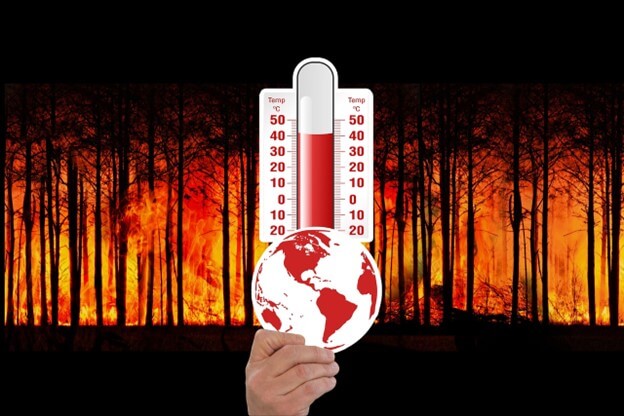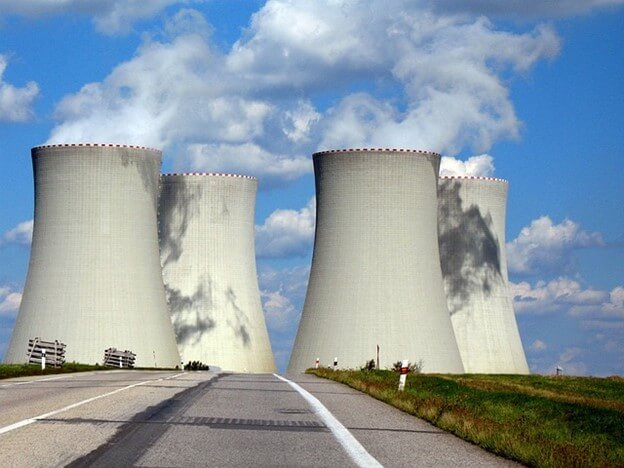November 2023 will likely go down in history as the warmest November ever, paving the way for 2023 to become the hottest year ever recorded. The average surface air temperature in November, soared to 14.22°C (57 °F), breaking the previous record set in 2020 by 0.32°C.

Based on data collected thus far in the year, it appears that 2023 will surpass 2016 as the warmest year ever recorded. This worrying pattern emphasizes how urgent it is that world leaders act decisively to stop the effects of climate change at the 28th United Nations Climate Change Conference (COP28).
Global Temperature Surge
Concerns regarding the planet’s extraordinary warming were raised by the executives and activists. In the month of November, the average global temperature for 2023 was 0.13 degrees Celsius higher than it was for the first eleven months of 2016.

The mean temperature of the earth this year is 1.46 degrees Celsius higher than the long-term average (1850–1900). The Copernicus Climate Change Service warns that this change in temperature has crossed a critical threshold. In order to lessen the severe effects of climate change, scientists stress the need to prevent sustained temperatures from rising above 1.5 degrees Celsius above pre-industrial levels.
Role of Greenhouse Gas Emissions

The increase in greenhouse gas concentrations, especially those of carbon dioxide and methane, is the main cause of the rising temperatures. It is alarming to note that burning fossil fuels is responsible for more than 75% of greenhouse gas emissions. To stop the unrelenting rise in temperature, significant and immediate reductions in emissions are required.
Copernicus Climate Change Service
According to the C3S report, November of last month was the hottest on record, breaking the previous record set in 2020. In November, the average global temperature was 0.85 degrees Celsius higher than the average for the period 1991–2020. Two days in particular even had a hotter temperature with a soaring plus 2 degrees higher than normal.

The report highlights the global nature of the temperature surge by noting that the highest sea surface temperature for November occurred between 60 degrees north and 60 degrees south of latitude.
El Niño Amplifying Climate Change
El Niño, the warm phase of a natural tropical Pacific climate pattern, is currently affecting the entire world.
The effects of climate change are being exacerbated by El Niño.
In order to guarantee a sustainable and resilient future, it is critical that the combined effects of El Niño and climate change are addressed as soon as world leaders gather at COP28.
COP28 and Global Response
At COP28 in the United Arab Emirates, world leaders are gathering to discuss the state of climate change mitigation and to negotiate comprehensive solutions. With 2023’s record-breaking temperatures, timing is crucial. Although there have been some encouraging developments at the conference, such as the establishment of a loss and damage fund to support countries that are disproportionately impacted by climate change, the $700 million that has been pledged is a small portion of what is required. The ongoing discussion about whether fossil fuels should be phased out or only reduced highlights how difficult it will be to come up with a coordinated global response.
Urgent Call for Action

Experts and scientists studying climate change are raising alarms and highlighting the need for wealthy and high-emitting nations to set the example in the shift away from fossil fuels. Extreme weather events and the effects of climate change, emphasize the necessity of a fair and quick reduction in the use of fossil fuels. Experts warn that if rapid emissions reductions are not implemented, catastrophic events such as heatwaves, droughts, fires, and floods will continue. The consequences of inaction may be dire.
Conclusion
2023’s record-breaking heat highlights how urgently international cooperation is needed to address the climate crisis. World leaders need to give priority to renewable energy sources and strive towards a sustainable future as COP28 approaches. The only way to ensure a more resilient and sustainable future for future generations is to undertake concerted efforts to address the underlying causes of climate change.
